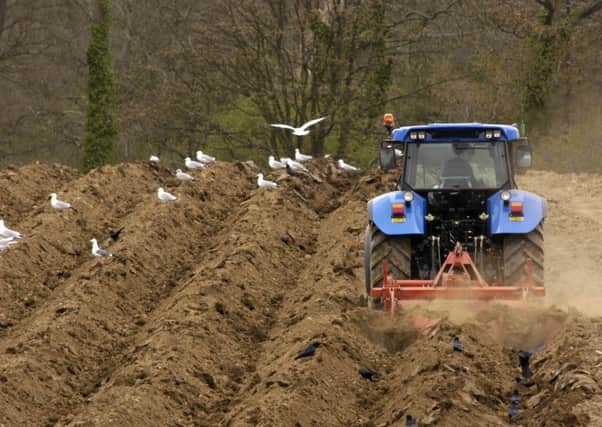Leaders: IT debacle a slight on already suffering farmers


It is no secret that Scotland’s agricultural sector has endured a torrid time of late. From the damage caused by flooding to dwindling milk prices, it is a community that has found its resilience severely tested by considerable anguish and losses.
In such circumstances, it is not unreasonable for them to expect their government to lend a helping hand. Yet today’s Audit Scotland report into implementation of the Common Agricultural Policy Futures programme reveals the reverse is true.
Advertisement
Hide AdAdvertisement
Hide AdThe subject matter may not animate the public at large, but the danger of understating its significance must be avoided. Bluntly put, it is arguably the most damning assessment yet of the SNP government’s nine years in power, one that makes the creation of Police Scotland look like an unqualified success.
The headline announcements in the watchdog’s report are staggering. It notes “multiple failures” at the heart of a botched £178m government IT system to deliver vital farming payments. Consequently, Scotland could now face fines of up to £125m over missed payouts, a levy that would have a ruinous impact on other public spending projects.
A multitude of reasons are cited by Audit Scotland, ranging from insufficient planning, poor performance and ineffective governance through to a lack of trust, a blame culture and an inability to address shortcomings.
But the devilry is in the detail of the 40-page report, the most concerning being the role of a delivery director employed by CGI, a global IT firm. In December 2014, a whistleblower informed the government the director owned a recruitment agency that was hiring staff for the programme, a clear conflict of interest.
It took three months for the government to set up a broader resources group, but the director remained in situ, influencing who was hired and signing off on overtime claims.
Only this January did the government find out that out of 107 contractors who were on a day rate higher than the figure agreed in the original framework with CGI, some 97 had been recruited through the director’s agency. Only then was he removed from the programme; farcically, CGI continues to use his staff.
This sorry episode is symptomatic of the shambles that passes for the IT scheme. It was set up in 2012 and, despite a series of warnings, it remains entirely unfit for purpose. Quite justifiably, NFU Scotland have described it as an “appalling state of affairs.” In the meantime, ordinary farmers and crofters suffer.
Given the scale of the problems, the appointment of a new rural affairs secretary is timely. The government is in a race against time to meet its targets and it will take a colossal sum of money to remedy the damage caused, but remedy it it must. As auditor general Caroline Gardner points out: “The scale of the challenge ahead should not be underestimated.”
Advertisement
Hide AdAdvertisement
Hide AdThe debacle also lends weight to the argument that the government should call a halt to further large-scale IT projects. It has squandered its responsibilities and, as a result, lost our confidence.
Journey to gender equality goes on
It is worth emphasising that, for all the talking points to emerge from yesterday’s cabinet shuffle, one element of continuity deserves praise.
First Minister Nicola Sturgeon has maintained the 50:50 gender balance on her top team, a split she first put in place two years ago as part of her pledge to put equality at the heart of government.
The recalibrating act of a reshuffle is never easy and the challenges faced by Ms Sturgeon – such as the calls for her to remove Angela Constance from the education portfolio – required no small degree of dexterity in order to preserve that 2014 commitment.
Even though the gender issue will not dominate coverage of the new cabinet, it comes at an apposite time, with Muirfield due to announce its ballot on women members today. Indications suggest the members of the historic golf club will vote yes, an outcome that would require the approval of a two-thirds majority of its 750 members. Let us hope that proves to be an accurate forecast and Muirfield moves with the times.
The arguments which defend the right of private clubs to do as they see fit are well rehearsed, but the prospect of a golf club on the prestigious Open Championship circuit continuing to discriminate on the grounds of gender is disappointing.
While one high-profile organisation is taking care to ensure parity between its male and female members, others – Royal Troon is the only other Open host which excludes women – are only now contemplating whether to open the door in the first place. Change can be inexorably slow, but the contrast shows there is still a long way to travel on the road to equality.